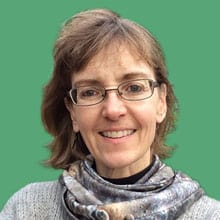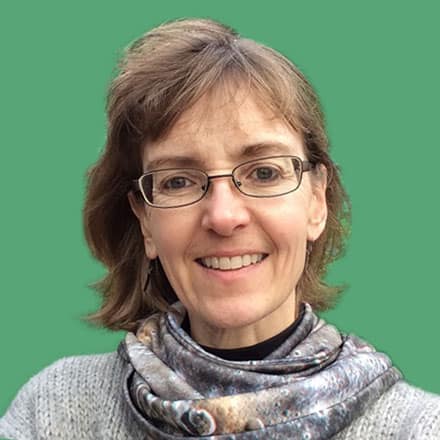Inside Angle
From 3M Health Information Systems
Horizon for a New Year
Like so many of you in the past week or so, I am on an airplane, going to visit family. So far I’ve been spending the flight alternately staring at the screen of my iPad and then staring out the window at the clouds, shifting bands of white and bluish gray, some puffy and some smooth, all the way to the vanishing point. There is no crisp horizon on this occasion, no sense of where the sky ends and the ground begins. It is mesmerizing, like staring into a limitless white fire.
I would probably find this cloudscape less appealing if I were reading Michael Crichton instead of working my way through another book on statistics—a book geared toward people like me, who tend to stare out the window a lot when reading books about statistics. But the resistance of the reader is not this book’s fault. It’s actually a pretty good one. It’s called The Drunkard’s Walk: How Randomness Rules Our Lives, written by Leonard Mlodinow. From the title, it’s not obvious that it’s about statistics, but it is, in the general sense. It’s about what we can learn from the statistical methods used to find patterns in the data. It also does a good job of identifying the limitations of those methods.
One of the things we should watch out for is when the someone who sets out to answer a difficult question has reframed the question—perhaps without even knowing it. Here’s an example, from an exchange I heard a few minutes ago. “Are we higher than anything?” the little girl across the aisle from me asks her mom. She’s about five, I would guess, and charming as all get-out—a little scientist, brimming with curiosity and wonder and a thirst for understanding. This is her first time in an airplane, and she can’t get over how tiny everything is. So… back to her question. “Yes!” her mother answers, “We are higher than the highest mountain!”
A good answer, given the audience. Mom has reframed the question and defined “anything” to mean any physical feature of the earth itself — not other airplanes, not satellites, not the moon. Given the context—that the person asking was five years old and the person answering was someone who wants to say yes to this little girl whenever possible—absolutely, it is accurate to say that at this moment we are higher than anything.
Her brother, two rows ahead and sitting with their dad, looks to be about seven, and I imagine he spends much of his time either defending his sister against others or crushing her himself (depending on his mood). He could easily have reframed the question so that the answer, no matter what, began with the words, “No, dummy.” He could have defined “anything” as the literal, physical position of his sister in relation to the plane itself, and said, “No dummy—the ceiling is higher than you are.”
Communication is such a tricky thing. Every time we exchange information with another person, we swim in a sea of necessary premises, unspoken assumptions, and motivations inscrutable even to the person who has them. Every question we ask comes with our own unique baggage. The person we ask is unconsciously trying to unpack our baggage—what did she mean by this, what did she mean by that—in order to attempt to answer. And of course, the answer comes back weighted down with the answerer’s own unique baggage. We have to operate that way, or we would never get down to the business end of saying what we want to say. We would be paralyzed by context. In a way, it’s amazing that we manage to communicate at all, ever. And most of the time we do not have the luxury of understanding the full context in order to assess its accuracy. We ask an expert because we can’t all be expert in every field, and so we often trust the information because it comes from a trusted source. Yes! We are higher than anything, because Mom says we are.
Reading this book has made me a more alert consumer of numbers. I am better able to spot the statistically derived probabilities which are typically reported as simple numerical facts. That doesn’t dent my ability to trust in the least—it just makes me a more competent reader of the information I am given. The trust I am talking about runs deeper than this sort of number reading comprehension. It is a trust in the process itself, that the exchange of information is worthwhile, that real benefits are possible when data is responsibly collected and communicated. Communication is fundamentally about trust, and the ability to trust information has taken a big hit this year. But we have to continue to take that leap and trust where we can.
Are we higher than anything? Yes! We are higher than the highest mountain.
Wishing you all the best in the New Year.
Rhonda Butler is a clinical research manager with 3M Health Information Systems.


